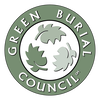|
by Max Gottlieb Preparing for end of life is essential, but many people don’t know where to turn when it comes to mourning. You may be surprised to learn that there are many community bereavement resources if you know where to look. These resources include hospice groups, grief camps, counseling groups, and of course, traditional ones on one grief counseling. Read more... Even if your loved one did not receive hospice care, many hospice groups offer grief assistance to the public. Support from a hospice group includes group counseling, phone support, short-term counseling, literature about grief, and even volunteers who are there as a resource to talk to. Hospice groups are generally experts in handling grief and as well as navigating times of personal crisis. For children especially, hospices have been at the forefront of bereavement education programs. This includes group sessions after school for those affected by death, and teaching school counselors useful tools when working with children. Another unique grief resource that many people are unaware of is what is called a grief camp. These camps are also designed with grieving children in mind. Children affected by death can go to a camp for a weekend or week and work with grief counselors and volunteers to process their grief. Another benefit is that they will be around peers going through the same thing, which can be hard to find in their schools or social groups. Depending on a camper’s age, events include art, play, storytelling, movement exercises, group rituals, and more expressions of grief. When it comes to finding community, on the adult end of the spectrum are counseling groups. Counseling groups are professionally facilitated self-help groups open to the public, usually for free. Open groups allow participants to come as often or as little as they like. Structured groups may offer a preset program with different topics for each session, which means members must attend each session as each session will build upon the last. An unstructured group generally follows the needs of the group members and the sessions change depending upon who is in attendance. Social support is vital in grief recovery so even for people who don’t want to participate, attending a group without sharing still has a therapeutic effect. For those who don’t feel group sessions are for them, personal bereavement counseling is a valuable resource offered by private clinicians across the country. Sometimes people don’t believe they have the funds for one-on-one counseling, but many hospice groups offer counseling on a sliding-scale fee basis. The main objective of counseling is to find a way to express grief and to help a mourner progress through the stages of grief. Accepting a loss is the first stage. Processing the pain is the second stage. Stage three is to adjust to a new reality without the presence of the person that was lost. And stage four is to find a new connection with the person who has passed away while still going on with life. Without these four stages of grief, the process is prolonged which can lead to both emotional and physiological health issues. Dealing with grief does not mean you have to move on, forget, or lose the connection with a loved one who has died. But in order to live a healthy life moving forward, bereaved persons need to get to a place where their sadness and/or pain do not take complete control of life. Nobody should be expected to rush or stop grieving before they are ready, but if you or someone you know has recently lost someone, these community resources can be a great place to start on your bereavement journey. Max Gottlieb is the content manager for Senior Planning. Senior Planning helps seniors and their loved ones navigate the complicated landscape of long-term care planning.
7/17/2020 01:57:42 pm
My mom passed away about a month ago, and because I lived with her as her primary caregiver, I've been having a really hard time moving on with my life. I have been thinking about joining a grief support group so that I can talk to other people who are going through the same thing. I love that you talk about the fact that social support is a key factor to recovery, and that being with a group who understands you is a therapeutic experience. 11/26/2020 09:51:02 pm
I appreciated it when you mentioned that there is personal bereavement counseling offered by some services where you can seek support and help after you encounter the loss of your loved one. My friend is going through a tough time after her mother passed away a few weeks ago due to cancer and she seems unable to accept the fact that her mother is no longer around. I will suggest to her going for grief counseling so she can get some support to help her move forward. 2/8/2021 08:14:16 pm
A grief camp sounds useful for kids if it is designed for them too, as you said. Children can't comprehend emotions like adults can. They need all the help they can get when going through grief. Comments are closed.
|
Call for EntriesWe welcome original content with unique perspectives for the GBC Blog, preferably not previously published. The views and opinions expressed on the GBC Blog are those of the authors and do not necessarily reflect the official position or policies of the GBC. Submit entries by email Archives
February 2024
|
 RSS Feed
RSS Feed

